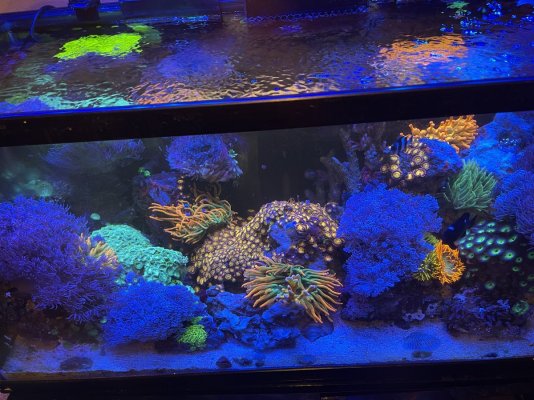- Joined
- Dec 28, 2016
- Messages
- 22,829
- Reaction score
- 21,963
I don't think he is trolling - he has many theories that he has posted in other threads about nitrification, etc.Randy, you got baited back!even though you swore you woudn't
I know the feeling. I get the itch to reply to Mr Anthias.
But my "troll" alert alarm is ringing. Nothing makes sense! I don't even find the studies he references in the ADD posts. Research by Feldman 2010? The only Feldman 2010 I found was Feldman's research on testicular cancer. ;Woot
Feldman 2010 research
Randy, you got baited back!even though you swore you woudn't
I know the feeling. I get the itch to reply to Mr Anthias.
But my "troll" alert alarm is ringing. Nothing makes sense! I don't even find the studies he references in the ADD posts. Research by Feldman 2010? The only Feldman 2010 I found was Feldman's research on testicular cancer. ;Woot
Feldman 2010 research
Lets back up - what exactly does a skimmer 'remove'.? mine has (a week after cleaning) - a LOT of junk in it. Dark brown thick junk (I do more dry skimming).where all the nitrogen, released as ammonia after consumption, is coming from? About 85 % of the nitrogen present in the feed ( proteins) is released as ammonia, some is used to produce new protein to grow, and the rest, the bio-waste, is immediately colonized, to retrieve the carbon, releasing the rest of the nitrogen to be used up fast. How much protein is left over to be skimmed?
Must one be blind for reality or does it all depend on the accurancy of the method used For measuring wich may lead to the assumption there plenty. Does it or not?
The first thing what will be colonized are proteins, because everything needed is on hand to start up the creation of DOC needed to produce the energy and grow . I would not like to have a tank where a skimmer can remove a lot of proteins.
The protein a skimmer may remove, if any, is of no importance when looking to the complete picture. It is not about what theoretically may take place, it is about what actually happens what will make the difference.
For example when I feed my LRS (Which I don't rinse) - the water becomes slightly cloudy and the skimmer goes into overdrive. I'm ASSUMING - that at least some extra (ie. food thats not yet turned into ammonia) - is removed. This will result in 'lower nitrate'. I'm assuming that skimmers also remove various EXCESS bacteria from the water column. Like heterotrophs - that are not attached. This also removes the potential for nitrate formation (when they eventually die).
IMHO - its clear that the skimmer helps prevent a high nitrate by removing excess nutrients. I do not see at all how it can be a negative. The goal of my tank is to feed the corals and fish - not necessarily all sorts of bacteria.
Very little of this discussion has much to do with the topic of the thread though?


















